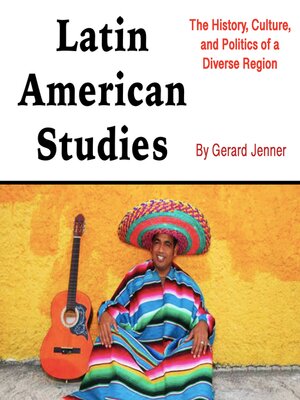Latin American Studies
audiobook (Unabridged) ∣ The History, Culture, and Politics of a Diverse Region
By Gerard Jenner

Sign up to save your library
With an OverDrive account, you can save your favorite libraries for at-a-glance information about availability. Find out more about OverDrive accounts.
Find this title in Libby, the library reading app by OverDrive.



Search for a digital library with this title
Title found at these libraries:
| Library Name | Distance |
|---|---|
| Loading... |
This audiobook is narrated by a digital voice.
The Spanish conquistador Hernán Cortés stood atop the great temple of Tenochtitlan in 1519, gazing across the vast island city that housed perhaps 200,000 inhabitants connected by an intricate network of canals and causeways that rivaled Venice in its engineering sophistication, while the Aztec emperor Moctezuma contemplated whether these strangers represented returning gods or mortal enemies who would transform his world forever. Dr. María Rodríguez, an archaeologist studying pre-Columbian civilizations, examined Aztec codices while reflecting on how this momentous encounter initiated five centuries of cultural collision, adaptation, and resistance that would create the complex mosaic of identities, languages, and social structures that define contemporary Latin America.
The colonial period in Latin America encompassed three centuries of profound transformation that reshaped the demographic, cultural, and economic landscape of the Americas through the encounter between indigenous civilizations, European colonizers, and enslaved Africans who created new societies that were neither purely European nor indigenous but represented novel combinations of traditions, technologies, and worldviews that would define Latin American identity for centuries to come.
Pre-Columbian civilizations including the Aztec Empire in central Mexico, the Inca Empire stretching along the Pacific coast of South America, and the Maya city-states of Mesoamerica had developed sophisticated political systems, architectural achievements, agricultural techniques, and intellectual traditions that rivaled or surpassed contemporary European civilizations in many respects. These societies created complex urban centers, extensive trade networks, and advanced knowledge of astronomy, mathematics, and medicine while supporting millions of inhabitants through innovative farming methods and social organization.







